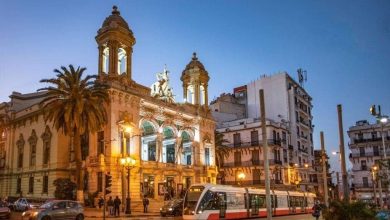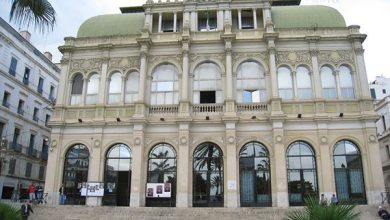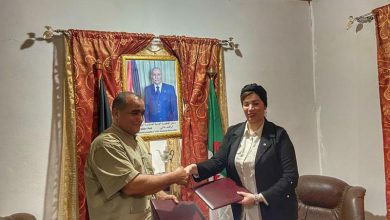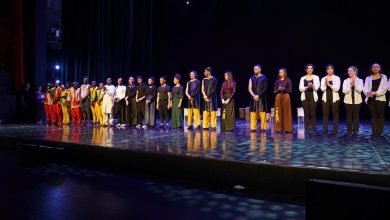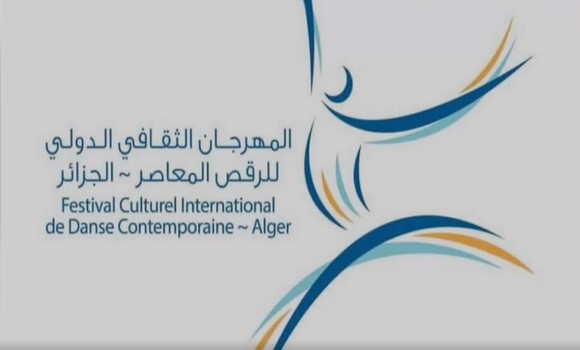
The 11th International Cultural Festival of Contemporary Dance continued on Saturday night at the Algiers Opera Boualem-Bessaih with the third evening show “Bow’t trail Retrospek” by the Canadian choreographer Rhodnie Désir and choreographic performances by Algerian companies from several provinces.
In front of a relatively large audience, this evening was marked by the performance of the dancer and choreographer Rhodnie Désir, entitled “Bow’t trail Retrospek”, a work that is linked to migration and the forced displacement of populations through a dialogue between the present and the past, based on testimonies collected in several African and American countries.
Lasting 35 minutes, this piece is the result of several years of research into origins and plural ancestrality through a journey through several countries on the African continent, Haiti, Brazil, Canada and Mexico.
Drawing on all the African cultures and rhythms produced by the peoples, “Bow’t trail Retrospek” brings back to life the slave trade and the pain of the forced exile of the African populations, through a choreographic writing enriched by documentary images and a live musical creation.
Drawing on all the African cultures and rhythms produced by the peoples, “Bow’t trail Retrospek” brings back to life the slave trade and the pain of the forced exile of the African populations, through a choreographic script embellished by documentary images and a live musical creation.
Backed on stage by the musicians Jahsun, a specialist in polyrhythmic music, and the beatmaker Engone Endong, Rhodnie Désir is accompanied in her physical performance by transcendent rhythms with rock sounds, backed up by projections of images and sounds with multiple dimensions.
“The light design, predominantly blue, refers to mythical places and spaces and allows for transcendence,” the artist explains. Referring to drums, the artist used wooden boxes, a creative approach to “multiply the body”, she explained.
For its part, the contemporary dance troupe of the Maison de la culture de Tizi-Ouzou performed its work entitled “Resurrection”, a show of three tableaux performed by eight dancers. The idea of the show is based on the often “negative” and contemptuous view of a society that is hostile to creation and to the artist.
“Resurrection’ tells the story of an ‘anxious’ dancer who wakes up in a psychiatric hospital bed. Unable to bear the scorn, the dancer tries to free himself from the clutches of his society and fights to practice his art and thus affirm himself as such.
The “KBS” troupe from Ain Defla presented its show “J’ai perdu ma gravité”, an “expressive” body dance designed by the dancer Hadj-Ahmed Yahia Zakaria. His creation, he says, is based on introspection, far from rhythmic dance, which is more about interpretation. “Osmos”, another show presented during the evening, features ten minutes of individual and collective performances by six dancers trained by the choreographer Nouara Idami, director of the Eponyme artistic cooperative.
The choreographer and dancer Samar Bendaoud presented “Diary”, an extract from a creation by her eponymous company, performed by three dancers. The show tells the dancers’ internal monologue through movement. Diary” does not interpret, but tells and conveys an experience, a feeling”, says Samar Bendaoud.
The 11th International Festival of Contemporary Dance continues until 13 March, with performances by contemporary dance companies from several countries such as Italy, Russia, and Tunisia, in addition to Algerian troupes and the Ballet of the Opera of Algiers.
The Sunday evening will be animated by dancers from the Moscow Academy of Choreography (Russia).


